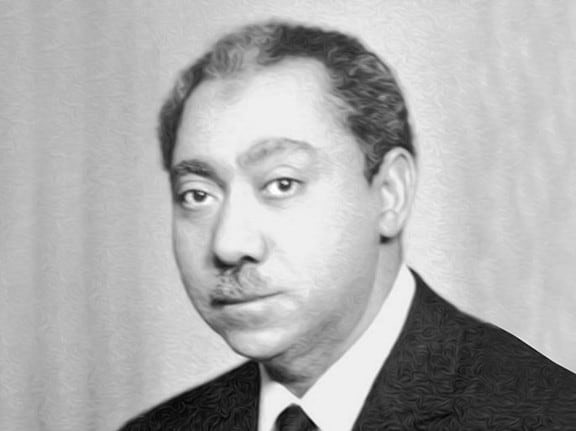

Ayesha Omar draws here from her chapter ‘Liberal Modernity and Colonial Domination: Sayyid Qutb (1906-1966)’ that appears in ‘Rethinking Political Thinkers’ (Oxford University Press, 2023)
Sayyid Qutb exerted enormous influence on Islam in the modern period and is frequently described as one of the most important intellectuals and radical ideologues of the twentieth century. His copious writings routinely circulating in the Muslim world have been translated into an extraordinary number of languages and he is read from Indonesia to Sudan. Some have argued that Qutb’s untimely execution and inability to clarify controversial terms have led to the radical interpretation of his writings.
Qutb’s writings, I suggest, are useful for understanding Islam’s relationship to liberal modernity and secularism, the politics of the Islamic world, and the concept of freedom. While Qutb’s ideas are susceptible to a militant Islamic reading, his ideas are also significant for the manner in which he responds to the dominant, Western philosophical and epistemological paradigm that proclaims the superiority of rationalist and enlightenment values. Qutb categorically repudiates the claim that a rationalist, secular, Western framework is the source of human freedom and progress. Interestingly, he does not question the genealogy of the Western ‘secular’ tradition of political thought or that its major exponents (such as Hobbes and Locke) were Christian thinkers and their thought was deeply marked by Christianity.
Instead, through his rejection of liberal modernity, partly informed by his experience of colonial occupation, Qutb articulates an alternative possibility for how we think about freedom and revolution, grounded in a moralizing ethic. Qutb’s impact on transnational politics and ability to craft an Islamic response to Western colonialism needs to be appreciated in the context of European expansion and imperial control. His ideas concerned with reinstating religious purpose and ethical meaning are a reaction to exploitation and dispossession which the colonial experience had delivered in Egypt and elsewhere in the Muslim World.
The method and literary style which Qutb utilizes in his political thought are shaped by his pedagogical training. His writings, although multi-layered, contain a ‘strong strain of didacticism’ and are instructive in tone. But his writings are also, as the scholar, Tripp correctly points out, ‘confessional’ in nature, and experiences such as his personal disillusionment with a morally corrupt Egyptian society or his decade-long imprisonment ought to be understood as events which directed how he thought about politics and society and the place of Islam in the world.
Qutb’s critique of liberal modernity and indeed Western epistemology is underpinned by his rejection of secularism and its claims for the supremacy of the sovereignty of man over God. Divine sovereignty for Qutb entails submission to God’s laws and authority, and secularism is viewed as a pernicious outcome of Jahilliyyah. For Qutb, Islamic tradition has been problematically substituted with a range of ideologies and forms of governance: communism, capitalism, liberalism, materialism, and polytheism.
Qutb responds to these so-called aberrations of human society by offering a perspective on moral freedom. His work can be considered to be decolonial in at least two respects. First, is his critique of secularism as an epistemic category, which highlights the link of the former with coloniality through its essentialized view of religion as a private affair. Second, is Qutb’s response to modernity, which venerates the supremacy of Islam, thereby displacing the abstract universalism of Western epistemology as a hegemonic tool that shapes the conception of religion as a representational concept of knowledge and cognition.
Qutb’s impact on political movements and actors in the Muslim world has meant that key concepts and ideas contained in his ideology have garnered interest far beyond the academic study of political Islam. As such, Qutb’s writings are often associated with the idea of Islamism, defined as the practical realization of the formation of a state and society according to a set of Islamic principles derived fundamentally from Quranic scripture. It is Qutb’s contribution to constructing the theoretical basis of Islamism in the post-colonial Sunni Muslim World that draws attention to the remarkably complex nature of his intellectual project and the convictions which underscored his ideological certainty.
Dr Ayesha Omar is a Senior Lecturer in Political Studies at the University of the Witwatersrand and a British Academy International Fellow at SOAS, University of London working on a new book project on Black Intellectual History in South Africa.


